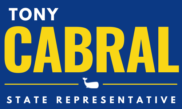Op-Ed: “Massachusetts’ Competitiveness Begins at Home: The Case for Reforming the State’s Outdated Local Aid Formula”
October 30, 2023
Back in 2019, the MA House and Senate unanimously approved an overhaul of the state’s funding formula for public education, following findings released by the 2015 Foundation Budget Review Commission, resulting in an infusion of millions of dollars into school districts that had been chronically and historically underfunded. As we approach the four-year anniversary of the signing of the SOA, I refer to this process – from commission to legislation to statute – because it was a massive cross-sector, multiyear initiative, that set a precedent for formula reform. This Legislative Session, I believe it is high-time the legislature sets its sights on the Unrestricted General Government Aid (UGGA) formula – also known as local aid.
Since 2010, I’ve been fighting to reform the Commonwealth’s Local Aid formula and last week I testified before the Joint Committee on Municipalities and Regional Government in support of my bill, H.2115, An Act to establish a commission to study the distribution of unrestricted local aid. As a State Representative from New Bedford and House Chair of the Gateway Cities Legislative Caucus, I know first-hand how inequitable this funding formula has been to communities like mine. Cities and towns rely on Local Aid to pay for vital services like fire, police, health, public works, and more. And when the state’s UGGA funding does not keep pace with inflation and the rising costs of those services, communities like New Bedford are faced with either cutting services or, even worse, relying too heavily on local property taxes, which have already been raised to a breaking point.
The current method of local aid distribution is critically outdated. The fiscal 2010 budget created the category of Unrestricted General Government Aid (UGGA) by combining the previous budget categories of Lottery Aid and Additional Assistance. The problem with this strategy was, while lottery aid amounts were based on a formula that can account for changes over time, additional assistance was based on figures frozen in 1991. This inherent inequity in the local aid formula has only been compounded in the decades since and was exacerbated by the adoption of UGGA in FY2010.
This effect is particularly significant in our Gateway Cities, communities which face many of the same challenges as Boston, but who receive a disproportionately lower level of state support. For example, in FY24, Unrestricted General Government Aid overall increased by an additional 3.2% or approximately $39 million. Out of that additional funding, Boston received the largest share, approximately 18% ($7 million) while Worcester, the state’s second largest municipality, received 4% ($1.5 million). Springfield, the third largest municipality, received 3% ($1.2 million). For smaller cities, New Bedford received 2% ($780,000) and Haverhill received 0.9% ($351,000).
The Local Aid problem cannot be solved by modest, incremental increases that are not guaranteed each budget cycle. The future economic-growth and quality-of-life for residents in Gateway Cities rely on a reformulated UGGA formula that rectifies years of inequitable funding distribution. It is time for the legislature to form a commission to study these funding inequities, work closely with municipal leaders, and propose recommendations to reform the Local Aid formula that works for all communities. A study by the Federal Reserve Bank of Boston concluded that the across-the-board cuts after the Great Recession of 2008 – while seemingly equitable – ignored the relative fiscal health of each community. My hope is that this “need capacity gap” identified by the Fed be factored into a new, fairer Local Aid formula, which will make up for years of underinvestment in Gateway Cities.
Residents of the Gateway Cities deserve the same high-quality public services that other wealthier communities enjoy. UGGA is the only source of local aid that municipalities like New Bedford can rely on to fund these foundational services that keep Massachusetts residents living here, raising their children here, and paying their taxes here. The fate of the Commonwealth’s economy – including its competitiveness and high standard of living – relies on a rising tide for all communities.
Antonio F.D. Cabral
State Representative, 13th Bristol District
New Bedford
